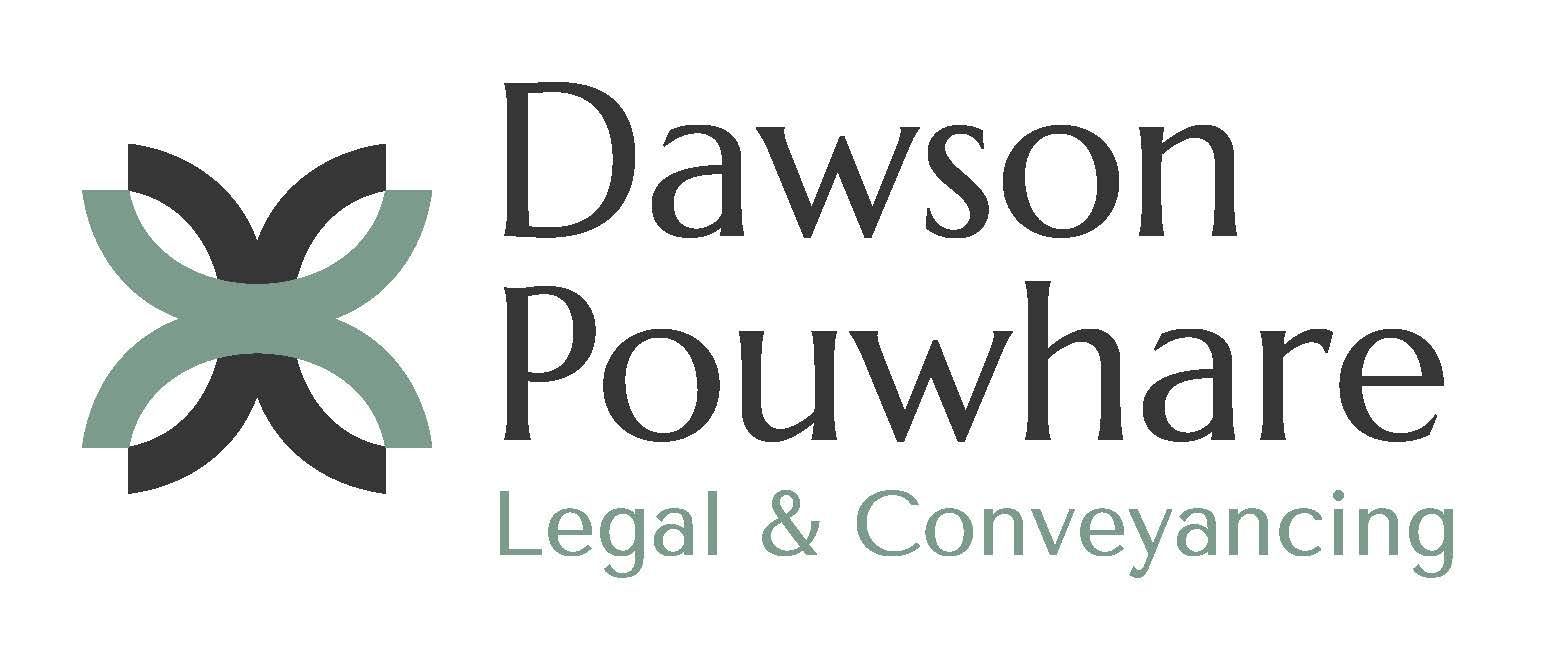Understanding Stamp Duty and Concessions in NSW: A 2025 Guide for Property Purchasers
Jamie Lee Pouwhare • May 27, 2025
Stamp duty is one of the most significant additional costs that purchasers face when buying property in New South Wales (NSW). Whether you’re a first home purchaser or an experienced investor, understanding how stamp duty works—and what concessions may be available—can make a substantial difference to your overall financial position.
What Is Stamp Duty?
Stamp duty, officially known as transfer duty, is a tax imposed by the NSW Government on property transactions. It is governed by the Duties Act 1997 (NSW). The amount payable depends on the property’s purchase price or market value, with higher-value properties incurring higher duties.
For example, a property purchased for $800,000 may attract a transfer duty of over $30,000 if no concessions apply.
First Home Buyer Assistance Scheme (FHBAS)
To support first home purchasers, the NSW Government offers a First Home Buyer Assistance Scheme (FHBAS), which provides either exemptions or concessions on transfer duty.
Under this scheme, as of 2025:
Full exemption applies for new and existing homes valued up to $800,000
Concessions apply for homes valued between $800,000 and $1,000,000
Vacant land valued up to $350,000 may also be exempt, with concessions available up to $450,000
Eligibility criteria include:
You must be an individual (not a company or trust)
You and any co-purchaser must not have owned residential property in Australia before
You must move into the property within 12 months and live there for at least 6 continuous months
These concessions are authorised under sections 18–24A of the Duties Act 1997 (NSW).
Annual Property Tax Option (First Home Buyer Choice)
The First Home Buyer Choice scheme introduced an alternative to upfront stamp duty for eligible first home purchasers. Instead of paying transfer duty, buyers can opt to pay an annual property tax, calculated based on the land value.
Key points:
Available for homes purchased up to $1.5 million or vacant land up to $800,000
The choice must be made before settlement
Applies only to purchases made between 16 January 2023 and 30 June 2025
Note: From 1 July 2025, this scheme will be replaced by broader housing affordability measures, so purchasers are encouraged to seek legal advice promptly if considering this option.
Surcharge for Foreign Purchasers
Foreign individuals buying residential property in NSW are subject to an additional 8% surcharge purchaser duty, under section 104L of the Duties Act 1997 (NSW). This applies even if the purchaser resides in Australia on certain visa types. Legal advice is essential to confirm residency status and potential exemptions.
Why Legal Advice Matters
Stamp duty obligations can be complex, and failing to claim available concessions—or choosing the wrong payment structure—can lead to unnecessary financial strain. Our team at Dawson Pouwhare Legal and Conveyancing regularly advises property purchasers across Lake Macquarie, Newcastle and surrounding areas on how to structure their purchase in the most efficient way.
Need tailored advice on stamp duty or your property transaction?
Visit www.dawsonpouwhare.com.au or contact us today to speak with one of our experienced solicitors.

Timeline of a Conveyancing Transaction in NSW One of the most common questions asked by parties to a property transaction is: “How long will the conveyancing process take?” The answer will vary depending on the circumstances of the transaction. However, every conveyance has a clear beginning and a clear end. In New South Wales, the conveyancing process generally commences with the exchange of Contracts for the Sale of Land and concludes at settlement, when ownership of the property is transferred from the Vendor to the Purchaser and all contractual obligations have been satisfied. Understanding the typical stages of a conveyance can help Vendors and Purchasers feel informed and prepared throughout the process. Work undertaken prior to exchange of contracts Although exchange of contracts is the legal starting point of a conveyancing transaction, a significant amount of important work occurs before exchange. This preparatory stage is critical, as once contracts are exchanged, the parties are generally legally bound. Prior to exchange, your solicitor will typically: Review the Contract for Sale to ensure it complies with NSW requirements and accurately reflects the agreed terms, including the purchase price, settlement period, inclusions, and any special conditions. Advise on legal risks and obligations, such as easements, restrictions on title, zoning issues, strata matters (if applicable), and any unusual or adverse contract terms. Negotiate amendments to the contract, including changes to special conditions, settlement dates, deposit arrangements, or conditions relating to finance or building and pest inspections. Conduct preliminary searches and enquiries where appropriate, to identify potential title or planning issues that may affect the property or the purchaser’s intended use. Advise purchasers on cooling-off rights, including whether the statutory cooling-off period applies, how it operates, and the consequences of waiving or excluding it. Coordinate with real estate agents, brokers, and lenders to ensure timing aligns with finance approval and the parties are ready to proceed to exchange. Explain the practical and financial consequences of exchange, including deposit requirements, key dates, and the risks of proceeding prematurely. For purchasers, this stage provides the opportunity to fully understand what is being bought and to make an informed decision before becoming legally committed. For vendors, it ensures the contract is accurate, enforceable, and structured to minimise delays or disputes after exchange. Careful legal preparation prior to exchange can prevent costly issues later in the transaction and helps ensure the conveyance progresses smoothly once contracts are exchanged. Exchange of contracts Exchange of contracts marks the legal commencement of the transaction. Prior to exchange, the Vendor and Purchaser negotiate the terms of the contract, including the purchase price, settlement period, inclusions, and any special conditions. At exchange: • the Vendor signs one copy of the contract; • the Purchaser signs an identical copy; and • the contracts are checked page by page to ensure they are identical before being formally exchanged. Once exchanged and dated, the contract becomes legally binding on both the Vendor and the Purchaser. From this point: • the deposit becomes payable and is usually held in trust; • statutory and contractual timeframes commence; and • the parties are committed to completing the transaction, subject to any applicable cooling-off rights. Under the Conveyancing Act 1919 (NSW) , most residential purchases attract a five-business-day cooling-off period, unless it is validly waived or excluded. The date of exchange is critical, as it determines all key deadlines, including: • cooling-off expiry; • finance approval periods (if applicable); • adjustment calculations; and • the settlement date. The period between exchange and settlement The period between exchange and settlement is when most of the legal and administrative work occurs. For residential conveyances in NSW, the standard settlement period is 42 days (six weeks), unless otherwise agreed. During this period, the Purchaser’s solicitor will typically: • review title searches and enquiries to ensure the Vendor can provide good title; • liaise with lenders regarding loan and mortgage documentation; and • prepare for settlement. The Vendor’s solicitor will: • arrange for discharge of any existing mortgages; • prepare adjustment figures; and • ensure the Vendor complies with contractual obligations. Both solicitors liaise with banks, agents, and each other to ensure settlement can proceed smoothly. Settlement Settlement is the final stage of the conveyancing process. At settlement: • the balance of the purchase price is paid by the Purchaser; • title to the property is transferred from the Vendor to the Purchaser; and • the transaction is completed in accordance with the contract. In NSW, settlements are now predominantly conducted through electronic conveyancing platforms, allowing parties, solicitors, and lenders to meet in a secure electronic workspace. Funds and title documents are exchanged digitally, improving efficiency and accuracy. For Vendors, sale proceeds are generally transferred directly into their nominated bank account on the day of settlement. Why experienced legal advice matters While many conveyances proceed without issue, problems can arise, including: • damage to the property between exchange and settlement; • delays in finance approval or mortgage discharge; • title defects; or • insufficient funds to complete settlement. Experienced legal advice can often resolve these issues quickly and reduce the risk of delay or dispute. How Dawson Pouwhare Legal & Conveyancing can assist At Dawson Pouwhare Legal & Conveyancing, we provide clear, proactive advice to both Vendors and Purchasers throughout the conveyancing process. We assist with: • contract review and negotiation; • exchange and cooling-off advice; • settlement preparation and electronic conveyancing; and • ensuring compliance with NSW conveyancing legislation.

Across New South Wales, an increasing number of families are becoming involved in legal disputes following the death of a loved one. Contested estates are now a growing and costly issue, often arising where estate planning has not kept pace with changing family circumstances, asset values, or legal requirements. Recent reporting has highlighted a steady rise in people dying: • without a valid Will, • with an outdated Will, or • with a Will that is unclear, incomplete, or open to challenge. As a result, applications relating to contested estates before the Supreme Court of New South Wales have increased significantly in recent years. This trend underscores the importance of careful, proactive estate planning. A properly prepared and up-to-date Will can help ensure your wishes are carried out and reduce the risk of disputes between those you leave behind. Contested estates are a growing problem in NSW In 2024 alone, more than 1,400 estate disputes were commenced in NSW. These included: • Family provision claims, where an eligible person argues that adequate provision was not made for them under a Will (or under intestacy), and • Contentious probate proceedings, where the validity of a Will itself is challenged. At the same time, it is estimated that close to 60% of people in NSW die without a valid Will. In these cases, the estate is distributed according to the rules of intestacy under the Succession Act 2006 (NSW), rather than according to the deceased’s personal wishes. For families with blended relationships, estrangements, de facto partners, or significant property holdings, intestacy often produces outcomes that were never intended and can fuel conflict between family members. Why are contested estates increasing? Several factors are contributing to the rise in estate disputes across NSW. Rising property values For many families, the family home is the most valuable asset in the estate. With median property prices in Sydney and surrounding regions now exceeding $1 million, estates that were once modest have become substantial. As estate values increase, so too does the incentive to challenge a Will or make a claim. Lack of valid Wills DIY Wills, online templates, and low-cost “off-the-shelf” options frequently fail to meet the formal requirements for a valid Will under NSW law. Errors in execution, unclear wording, or incorrect assumptions about asset ownership can leave a Will vulnerable to challenge or even invalid. Where no valid Will exists, intestacy provisions apply, often producing results that differ significantly from what the deceased may have intended. Outdated Wills An old Will can be just as problematic as no Will at all. Changes in relationships, financial circumstances, asset structures, or tax considerations may render an existing Will inappropriate or unfair. Outdated Wills are more likely to attract family provision claims and may expose the estate to unnecessary tax or administrative complexity. Blended and complex family structures Second marriages, step-children, estranged family members, and de facto relationships can all give rise to competing expectations. Without careful planning, these situations increase the likelihood of disputes, particularly where one group feels overlooked or unfairly treated. Increased awareness of legal rights The right of eligible persons to make a family provision claim under Chapter 3 of the Succession Act 2006 (NSW) is now widely understood. Spouses, former spouses, children (including adult children), de facto partners, and dependants may all have standing to bring a claim. Greater awareness has led to more claims being commenced. Unexpected outcomes Where a family member expects to receive a particular benefit and is surprised by the terms of a Will (or by the absence of one), they may be more inclined to challenge the estate. The consequences of a disputed estate Contesting an estate can have serious and lasting consequences, including: • Delay: Estate administration can be delayed for months or even years. • Costs: Legal fees, barristers’ fees, and court costs can significantly reduce the value of the estate. In many cases, both sides’ costs are paid from the estate itself. • Emotional strain: Litigation adds stress and uncertainty to an already difficult time for grieving families. • Broken relationships – Estate disputes often permanently damage family relationships. In short, disputes can erode both the financial value of an estate and the relationships it was meant to benefit. Steps to reduce the risk of a contested estate While no estate plan can prevent every possible claim, there are practical steps you can take to reduce risk and strengthen your position. Make a valid Will A Will must comply with the formal requirements set out in the Succession Act 2006 (NSW) to be recognised as valid. Engaging an experienced estate planning lawyer helps ensure your Will is properly drafted, executed, and legally effective. Plan early Estate planning is most effective when done well before it becomes urgent. Planning early allows for greater flexibility and avoids complications that can arise if capacity is lost through illness or accident. Review your Will regularly Major life events, such as marriage, separation, the birth of children or grandchildren, or significant changes in assets, should trigger a review of your Will. Even without major changes, a Will should generally be reviewed every three to five years to ensure it remains fit for purpose. Consider superannuation and non-estate assets Superannuation, trusts, insurance policies, and jointly owned assets do not automatically form part of your estate. These assets require separate consideration as part of a comprehensive estate plan. Be clear about your intentions Where appropriate, clear communication with family members can help manage expectations and reduce the risk of surprise or misunderstanding after death. Seek tailored legal advice Every family situation is different. What works for one family may create risk for another. Professional advice ensures your estate plan reflects your circumstances and minimises the likelihood of disputes. Get clear advice from a Wills & Estates lawyer The rise in contested estates in NSW highlights the importance of having a clear, legally sound estate plan. With increasing property values and more complex family structures, failing to plan properly can leave loved ones facing confusion, conflict, and costly litigation. By preparing a valid Will, reviewing it regularly, and obtaining tailored legal advice, you greatly improve the chances that your wishes will be respected and your family protected. How Dawson Pouwhare Legal & Conveyancing can help At Dawson Pouwhare Legal & Conveyancing , we provide clear, practical advice on Wills and estate planning, with a focus on protecting your assets and reducing the risk of future disputes. Call us today on (02) 4954 8666 to book in.

When parents separate, one of the most important steps is establishing clear and workable arrangements for their children. Many families feel unsure whether they should formalise their agreement through Consent Orders or opt for a more flexible Parenting Plan. There is no universa "correct" choice, each option serves a different purpose dependng on your family's circumstances. This blog explains the key differences, benefits and limitations of both pathays to help you make an informed decision. What Are Consent Orders? Consent orders are formal, legally binding Orders of the Federal Circuit and Family Court of Australia, made by agreement between the parties. In most cases, parents do not need to physically attend Court - the Orders are made "on the papers" once filed. You can reach an agreement through: Mediation and Dispute Resolution Private discussions between the parties, or Negotiations conducted by solicitors. Although you may never step foot inside a courtroom, Consent Orders carry the same legal force as Orders made after contested proceedings. Each party must comply unless there is a signifiicant and immediate risk of harm to the child that prevents compliance. If Consent Orders are breached, the Court has wide powers to enforce them, including: Fines, Injunctions, Good behaviour bonds, and In serious cases, imprisonment. If you cannot comply with a Consent Order due to safety concerns, it is essential to make an urgent application to vary the Orders. Consent Orders can be fild in the Family Court or the Local Court. A filing fee of $205 applies, though this may be waived if a party holds a Government Concession Card, has a Legal Aid grant, or meets financial hardship criteria. What Is a Parenting Plan? A Parenting Plan is a written agreement signed by both parties but not filed with the Court. Because it is not a Court Order, it is not legally enforceable. Parenting Plans can be created: Following Mediation, Through solicitor-assisted negotiations, or By private agreement between parents. While the Court cannot penalise a parent for breaching a Parenting Plan, it must have regard for the most recent Parenting Plan where it considers it in hte best interest of the child to do so. A Parenting Plan can then be used if future Court proceedings become necessary. Importantly, Parenting Plans do not attract any filing fees. Similarities and Differences: What Both Options Can Cover Both Consent Orders and Parenting Plans typically include arrangements for: Long-term decision making responsibilities, Where the child lives and how time is shared, School holiday and special occasion arrangements, Changeover procedures, Access to school and medical information, Communication (telephone or video calls), Travel arrangements, Safety-related clauses tailored to the child's needs. Key Differences Consent Orders Legally binding and enforceable Harder to change, require further agreement or Court application Filing fee and documents lodged with the Court Court can impose penalties for breach Parenting Plans Not legally enforceable Flexible and easy to update No filing fee and no Court involvement No penalties for breach Which Option Is Better? There is no one size fits all answer. The best option depends on the age of the children, the level of cooperation between parents, and the need for certainty or flexibility. In practice: Parenting Plans often work well when children are very young (around three years or under) and parents communicate effectively. Consent Orders are generally preferable where stability, clarity and enforceability are required, or where the co-parenting relationship is strained. If communication is poor or one parent is unpredictable, Consent Orders usually offer stronger protection and certainty. Need Advice About Parenting Arrangements? At Dawson Pouwhare Legal and Conveyancing , our Family Law Team, led by solicitor Kathryn Wielinga, is here to provide clear and practical guidance tailored to your circumstances. Kate is highly experienced in complex parenting and property matters. Contact our friendly team today for tailored advice.

When buying or selling property in New South Wales, one of the first terms you’ll hear is the cooling-off period. But what exactly does this mean, and how does it affect your rights as a purchaser? What Is a Cooling-Off Period? The cooling-off period allows a purchaser to secure a property while still having time to finalise key matters such as pre-exchange inspections, pest and building reports, and finance approval. In NSW, residential property purchasers are generally entitled to a five-business-day cooling-off period following the exchange of contracts. During this time, the purchaser may choose to withdraw from the contract for any reason before 5:00 pm on the fifth business day. It’s important to note that cooling-off rights only apply to the purchaser, not the vendor. If you require more time — for example, to receive finance approval or complete inspections — your solicitor or conveyancer may request an extension of the cooling-off period from the seller’s representative. When Does the Cooling-Off Period Not Apply? Certain property types and sales methods are excluded from the standard cooling-off protections. These include: • Properties sold at auction • Properties zoned as rural or commercial • Certain off-the-plan purchases, although these now benefit from an extended 10-business-day cooling-off period due to the complexity of such contracts For more information on purchasing property at auction or buying rural or commercial land, see our related articles on those topics. What Deposit Is Required at Exchange? Unless otherwise stated, the standard deposit on exchange is 10% of the purchase price. However, if you exchange contracts with a cooling-off period, you will usually pay a 0.25% deposit at exchange if agreed to by the vendor and the balance of the deposit must be paid before the expiry of the cooling-off period. Can You Waive the Cooling-Off Period? Yes. A purchaser may elect to waive their cooling-off rights by having their solicitor or conveyancer provide a Section 66W Certificate to the seller’s representative. Once this certificate is provided, the contract becomes immediately unconditional, meaning the buyer cannot later withdraw without penalty. What Happens If You Terminate During the Cooling-Off Period? If a purchaser decides to withdraw from the contract during the cooling-off period, they will forfeit 0.25% of the purchase price to the vendor. While this is a relatively small amount, it serves as compensation for the seller taking the property off the market during that time. Buying property is one of the most significant financial decisions you’ll ever make — and understanding your rights during the cooling-off period is crucial. At Dawson Pouwhare Legal & Conveyancing , our experienced team can guide you through every stage of your purchase, ensuring you make informed decisions and avoid costly mistakes. Contact our friendly team today on (02) 4954 8666 or visit www.dawsonpouwhare.com.au to arrange an appointment.

Many people assume a Power of Attorney is something they'll need only later in life - perhaps after retirement or when their health begins to decline. But in truth, this important legal document is just as relevant for younger adults who want to stay protected and in control of their affairs, no matter what life brings. What is a Power of Attorney? A Power of Attorney (POA) is a legal document that allows you to appoint a trusted person, your attorney, to make decisions about your legal and financial affairs. This could include: Managing bank accounts and paying bills Signing legal documents Buying or selling property Handling business transactions on your behalf It's important to note that a Power of Attorney does not authorise decisions about your medical treatment or lifestyle. Those powers sit under a separate document called an Appointment of Enduring Guardian in New South Wales. Types of Power of Attorney in New South Wales There are two main kinds of POA documents under the Powers of Attorney Act 2003 NSW : 1. General Power of Attorney: A General POA is typically used for short-term or specific purposes - for example, while you're travelling overseas or if you need help completing a one-off property transaction. It automatically ends if you lose the capacity to make your own decisions. 2. Enduring Power of Attorney: An Enduring POA remains effective even if you later lose decision-making capacity due to illness or accident. An Enduring POA is the preferred option for long-term planning and forms a key part of most estate planning strategies. Why Younger Adults Should Consider a Power of Attorney While it's natural to associate Powers of Attorney with older age, life can be unpredictable at any stage. A POA can provide vital protection for younger adults who travel, own property, run a business, or simply want peace of mind that someone they trust can step in if needed. Common examples include: Travelling or working overseas: your attorney can manage finances, pay bills, or assist if your accounts are compromised while you are away. Buying property: if you are unable to attend settlement, your attorney can sign documents on your behalf to keep transactions on track. Running a business: your attorney can authorise payments or contracts if you're unexpectedly unavailable. Medical emergencies: if you are injured and temporarily unable to manage your affairs, your attorney ensures your bills and commitments are handled. Having a Power of Attorney in place means your affairs continue smoothly even if you're not physically able to manage them. Mid Life and Beyond: Planning for the Future In your 40s and 50s, your focus may shift to stability and long-term security. A Power of Attorney becomes part of your broader estate planning, alongside your Will and Enduring Guardianship. It functions much like an insurance policy: there to protect your finances if the unexpected occurs. For example, if you are hospitalised, travelling, or lose capacity, your attorney can ensure mortgage payments, business operations, or family needs are met without interruption. For Older Adults: A Vital Safeguard For those entering retirement or managing health concerns, having an Enduring Power of Attorney is essential. Without one, your loved ones may face a lengthy and costly process applying to the NSW Civil and Administrative Tribunal (NCAT) to be appointed as your financial manager. If NCAT appoints a financial manager, they may be required to report to the NSW Trustee and Guardian, adding ongoing oversight and compliance obligations. By contrast, a properly executed Power of Attorney allows you to decide who manages your affairs and how much authority they have, before any issues arise. Who Should You Appoint as Your Attorney? Your attorney should be someone you trust completely. You can appoint one or more attorneys, and decide whether they act jointly (together) or severally (independently). You can also set limits on thier powers: for example, only allowing them to act if you lose capacity or only in relation to certain assets or decisions. How to Put a Power of Attorney in Place in NSW To make a Power of Attorney you must: Be over 18 years of age Have the mental capacity to understand the document Sign it before a prescribed witness (such as a Solicitor or Registrar of the Court) Your appointed attorney must also sign the document to formally accept the role. If your attorney will need to act in property transactions, the Power of Attorney must be registered with NSW Land Registry Services. You don't need to wait until something goes wrong to make a Power of Attorney, in fact, by then it may be too late. Setting one up now gives you peace of mind and ensures that, if the unexpected happens, someone you trust can act quickly and responsibly on your behalf. At Dawson Pouwhare Legal & Conveyancing , our experienced Wills and Estates team can guide you through the process of preparing a Power of Attorney that suits your individual needs. We'll help you understand your options, ensure that your document complies with NSW law, and provide tailored advice that gives you and your family complete peace of mind. Call us today on (02) 4954 8666 or email our friendly reception team, reception@dawsonpouwhare.com.au , for more information.

Recent reforms to retirement village legislation in New South Wales have introduced significant changes aimed at improving transparency, fairness, and consumer protection for residents. These reforms arise from the Retirement Villages Amendment Act 2020 (NSW) and the Retirement Villages Regulation 2017 (NSW). Key updates include revised rules for exit entitlements, recurrent charges, disclosure obligations, and asset-management requirements for operators. Exit Entitlement Payments Retirement Villages Act 1999 (NSW), ss 182–182E Residents who are registered interest holders—those who hold a long-term lease of at least 50 years and are entitled to share in capital gains—now have clearer rights regarding exit entitlements. Under section 182AE of the Retirement Villages Act 1999 (NSW), if an operator unreasonably delays payment of an exit entitlement after a resident vacates, the resident may apply to NSW Fair Trading for an exit-entitlement order. Once such an order is made, the operator must pay the amount within 30 days. These provisions give residents greater financial certainty when moving to new accommodation or aged care. Recurrent Charges After Departure Retirement Villages Act 1999 (NSW), s 152 Under section 152, registered interest holders are only responsible for recurrent charges for a maximum of 42 days after permanently vacating the premises. This reform reduces the ongoing financial burden on departing residents and their families during the transition period. Strengthened Disclosure Requirements (Retirement Villages Act 1999 (NSW), ss 18–19; Retirement Villages Regulation 2017 (NSW), cls 11–12) To promote informed decision-making, operators must provide prospective residents with key documents before any contract is signed, including: a General Inquiry Document; a Disclosure Statement; a copy of the village rules; and NSW Fair Trading’s publication “Moving into a Retirement Village?” These must be provided within the prescribed timeframes so residents can understand their rights and obligations before entering into a contract. Asset Management Plans Retirement Villages Regulation 2017 (NSW), s 72A(6) and Part 7A clauses 31A–31I Operators are required to prepare and maintain a detailed Asset Management Plan (AMP) to ensure the long-term maintenance and financial sustainability of the village. Under section 72A(6) and Part 7A (clauses 31A–31I) of the Retirement Villages Regulation 2017 (NSW), each AMP must include: a schedule for capital maintenance and replacement; an asset register identifying major shared items and infrastructure; and estimated costs and proposed replacement timelines. The plan must be reviewed at least every 10 years and made available to residents. These requirements promote transparency, accountability, and sound long-term financial planning within retirement villages. The Importance of Legal and Financial Advice Whether you are entering, living in, or exiting a retirement village, it’s vital to understand your rights and obligations under NSW law. These reforms strengthen consumer protection but also introduce new compliance requirements for operators and residents alike. A solicitor experienced in retirement village and property law can help you: review contracts and disclosure documents; clarify your rights to exit entitlements and fee arrangements; and ensure your operator meets all statutory obligations. At Dawson Pouwhare Legal & Conveyancing , our team provides clear, practical advice on all aspects of retirement village law in New South Wales. Call us today on (02) 4954 8666

Preparing a Will is one of the most important steps you can take to protect your loved ones and ensure your wishes are respected after you pass away. Yet, many people put it off — leaving behind not just uncertainty, but often family conflict and unnecessary expense. When someone dies without a valid Will, they are said to have died intestate. In New South Wales, this means your estate is distributed under the Succession Act 2006 (NSW) — not necessarily according to your personal wishes. What Is Intestacy? Intestacy occurs when: • No Will exists, • A Will has not been validly signed or witnessed, or • The Will does not dispose of the entire estate (known as partial intestacy). In these situations, the law steps in to decide who inherits your assets, and in what proportion. How Your Estate Is Distributed Under Chapter 4 of the Succession Act 2006 (NSW), a statutory order determines how an intestate estate is divided. This order prioritises next of kin in the following way: 1. Spouse or de facto partner – The surviving partner is generally entitled to the whole estate, but this can vary if the deceased had children from another relationship. 2. Children – If there is no surviving spouse, the children inherit equally. 3. Parents – If there is no spouse or children, the estate passes to the parents. 4. Siblings, then grandparents, and then aunts and uncles – in that order of priority. 5. The State of NSW – If no relatives can be found, the estate ultimately passes to the State under Section 136 of the Succession Act 2006 (NSW). This legal formula doesn’t consider personal relationships, promises, or intentions that were never formally documented. The Real-Life Consequences When there’s no valid Will, the fallout can be emotionally and financially devastating: • Family disputes often arise over “who should get what.” • Close friends or stepchildren may receive nothing, even if the deceased wished otherwise. • The process of administering the estate becomes longer and more expensive. In addition, appointing an executor (the person responsible for managing the estate) becomes impossible — meaning someone must apply to the Supreme Court of NSW for Letters of Administration, which can take months. The Ghost of the Unsigned Will An unsigned or improperly witnessed Will can be just as problematic as having no Will at all. Under Section 6 of the Succession Act 2006 (NSW) , a Will is only valid if it is: • In writing, • Signed by the testator (the person making the Will), and • Witnessed by two people present at the same time. Even where an unsigned draft exists, the Court will only accept it as valid under section 8 (informal Wills) if it can be proven that the deceased intended it to be their final Will — a complex and often expensive legal process. How to Avoid a Legal Nightmare The best way to ensure your estate is protected — and your family avoids conflict — is to prepare a properly drafted, witnessed, and up-to-date Will. A solicitor can help you: ✅ Draft a Will that complies with NSW legislation ✅ Appoint trusted executors ✅ Consider blended family and stepchild situations ✅ Update your Will after marriage, divorce, or major life changes Don’t Let Your Legacy Become a Haunting Putting off your Will might feel harmless, but it could leave behind more than memories — it could leave behind confusion, conflict, and heartache. Take control of your estate today. At Dawson Pouwhare Legal & Conveyancing , we help individuals and families across Lake Macquarie and Newcastle prepare legally sound, personalised Wills that stand the test of time. Call us on (02) 4954 8666 or visit www.dawsonpouwhare.com.au to book an appointment with our Wills & Estates team.

Purchasing a property off the plan - before construction is complete- can offer attractive benefits, particularly in a rising market. However, it also carries distinct legal and financial risks. Understanding the regulatory framework and contract terms is essential to ensure your interests are protected. This guide outlines the key considerations under New South Wales property law and how a solicitor can help safeguard your investment. 1. Understanding "Off the Plan" Purchases In NSW, buying off the plan means entering into a contract to purchase a property that is yet to be built or is still under construction. These contracts are governed primarily by the Conveyancing Act 1919 (NSW) , and the Conveyancing (Sale of Land) Regulation 2022 (NSW) , which impose specific disclosure obligations on developers to promote transparency and fairness. Developers must provide a Disclosure Statement that includes the draft strata plan (or community plan), proposed by-laws, a schedule of finishes and any other prescribed information. If there are any material changes before settlement, the purchaser may have rights to rescind or claim compensation under Part 4, Division 10 of the Conveyancing Act 1919 (NSW) 2. Secure a Fair Purchase Price When purchasing off the plan, you are locking in today's price for a property that may not be completed for several years. This can be advantageous if the market rises- but problematic if property values decline before settlement. Conduct thorough market research and compare the contract price with similar completed properties in the area. Consider engaging a qualified valuer or property advisor to ensure the purchase price reflects fair market value at the time of exchange. 3. Be Aware of Variance Clauses Many off-the-plan contracts contain variance clauses that allow developers to make changes to the layout, finishes or size of the lot. Some variances are reasonable and necessary, but broad clauses can significantly alter what you ultimately receive. Under S ection 66ZP of the Conveyancing Act 1919 (NSW) , developers must notify purchasers in writing if a change occurs to a material particular disclosed in the contract. If the change is likely to adversely affect the use, enjoyment, or value of the property—such as a reduction in lot size, alteration to layout, or downgrade in finishes—the purchaser may have the right to rescind the contract within 14 days of receiving notice. A property solicitor can review these clauses and ensure your contract provides fair protection if any material variations arise. 4. Review the Developer’s Credentials Your confidence in the transaction depends largely on the developer’s reputation and financial standing. Research their past projects, construction record, and history of completing developments on time. NSW Fair Trading and ASIC databases can help verify credentials and identify any past disputes or insolvencies. 5. Understand Fixtures, Fittings, and Finishes Off-the-plan marketing materials can be aspirational. Always review the schedule of finishes included in the Disclosure Statement and confirm that the listed fixtures and appliances match what was promised. Ask for specifications and model numbers in writing. If substitutions are proposed, the developer must provide written notice under the Regulations—and you may have recourse if the change is not of equal or better quality. 6. Clarify Floor Plans and Common Property Carefully review the draft plan to confirm: Lot boundaries and room dimensions Allocated car spaces and storage areas Access to common facilities and shared property In strata developments, these details determine ownership rights and levies under the Strata Schemes Management Act 2015 (NSW). A solicitor can ensure the plan accurately reflects what you are purchasing. 7. Deposits When purchasing off the plan in New South Wales, your deposit and any instalments are protected by strict legislative safeguards. Under Section 66ZT of the Conveyancing Act 1919 (NSW) , any money paid by a purchaser under an off-the-plan contract—whether as a deposit or progress payment—must be held securely in a trust or controlled money account until settlement. This means your money cannot be accessed by the developer during construction, reducing the financial risk if the project is delayed, altered, or does not proceed. Any interest earned on invested funds must also be returned to the trust account, ensuring transparency and security throughout the process. 8. Legal Review Before You Sign An off-the-plan contract is complex and heavily weighted in favour of the developer. It may include special conditions relating to construction delays, sunset dates, and settlement adjustments. A solicitor experienced in NSW property law can: Review and explain contract terms in plain English; Negotiate fairer variance or delay clauses; Verify compliance with statutory disclosure requirements; and Identify potential risks before you are bound by the agreement. How Dawson Pouwhare Legal & Conveyancing Can Help Buying off the plan can be an excellent opportunity—but it demands careful legal oversight. At Dawson Pouwhare Legal & Conveyancing, we provide comprehensive advice and representation for purchasers, including: Reviewing and negotiating off-the-plan contracts; Ensuring compliance with the Conveyancing Act 1919 (NSW) and related Regulations; Liaising with developers and agents for construction updates; and Protecting your contractual rights throughout the process. Speak to a Solicitor Before You Sign Before committing to an off-the-plan purchase, ensure you fully understand your rights, risks, and obligations under NSW law. Contact Dawson Pouwhare Legal & Conveyancing for clear, practical advice to help you make a confident, informed decision. (02) 4954 8666 www.dawsonpouwhare.com.au Your trusted property solicitors in Lake Macquarie and Newcastle, protecting your interests in every transaction.

A financial agreement is a formal document made between couples in a marriage or de facto relationship, setting out how finances and assets will be handled. In some ways, a financial agreement is similar to what some people would call a "prenup", but can be made before, during or following the end of a relationship. What Issues Can Be Covered These agreements may outline arrangements for: The division or sale of property The way in which parties to an agreement will split or retain their superannuation, and Ongoing financial support such as spousal or child maintenance They do not cover parenting matters or decisions about children's care, as those fall under separate legal processes. Timing of a Financial Agreement Couples have the option to enter into a financial agreement: Before a relationship becomes formalised (for example, prior to marriage) During the relationship After separation or divorce Who is Eligible? A financial agreement can be used by: Married couples Same-sex couples De facto partners Making the Agreement Binding To ensure enforceability, both parties must: Obtain independent legal advice and financial advice Properly sign the agreement This safeguard ensures fairness and full understanding of the terms. Why Enter into One? The purpose behind a financial agreement varies: During a relationship - to clarify how assets will be divided should the relationship end After separation - to avoid costly and stressful court proceedings and provide certainty These agreements may provide peace of mind, reduce disputes, and save both time and money. A Binding Financial Agreement can also save you and your former partner significant costs by potentially avoiding Stamp Duty on any property transferred between you. Steps to Finalise the Agreement Once negotiations are complete and both parties have obtained independent legal advice, signing the agreement makes it binding. Alternatively, parties may also choose to apply for consent orders through the court, which formally validates the agreement and provides the same enforceability as a court judgment. If Your Partner Breaches the Agreement If one party does not comply, Dawson Pouwhare Legal and Conveyancing can assist by negotiating enforcement or, where necessary, commencing court proceedings to ensure compliance. Setting Aside of Cancelling an Agreement A financial agreement may be altered or invalidated if: There was fraud, non-disclosure, or undue pressure at the time of the signing The agreement was created to defeat creditors A significant change in circumstances creates hardship (e.g. a child's injury or care needs) The terms have become impractical or unenforceable In such cases, the court has the power to set aside or vary the agreement. Why Work With Dawson Pouwhare Legal and Conveyancing? Because of their technical nature, financial agreements require experienced legal drafting and advice. Our team can: Explain your rights and obligations clearly Negotiate terms with your partner or their lawyer Draft agreements that comply with strict legal requirements Work alongside financial experts where additional advice is needed If an agreement is disputed or terms break down, we can also guide you through court options. Contact Our Family Law Team If you are considering a financial agreement, or if you are unsure about one you have already signed, Dawson Pouwhare Legal and Conveyancing can provide tailored advice. Speak with one of our experienced family lawyers today to dicuss the best way forward. Contact us today on (02) 4954 8666.

Securing Financial Support After Separation When separation occurs, it can leave one party in a difficult financial position, especially if they earn less, care for young children, or face health challenges. In many cases, the higher-earning spouse may have a duty to provide support until property matters are resolved. Our Family Lawyers can help you access urgent funds through: Spousal Maintenance Interim Property Settlement Court-ordered Litigation Funding Specialised Legal Fee Loans Why Acting Early Matters The first steps you take after separation are critical. Knowing your rights and responsibilities under the Family Law Act from the outset can significantly improve your outcome. Getting access to financial support early on allows you to manage your living costs and ensure you have proper legal representation. If you’re unsure how you’ll cover your expenses, we can advise whether you are likely to succeed with: a Spousal Maintenance Application, an Interim Property Division, or a Litigation Funding Order. Support Through Spousal Maintenance Spousal Maintenance is financial assistance provided by one spouse to the other after separation. It may be paid as ongoing instalments or as a lump sum to cover immediate needs, such as rent or bond money. It is designed to support the spouse directly—not the children, whose needs are met through Child Support arrangements. We can assist with urgent Spousal Maintenance applications and guide you through longer-term claims if required. Levelling the Playing Field: Litigation Funding Legal disputes can be costly, but a Litigation Funding Order can ensure both parties have fair access to justice. This order allows the financially disadvantaged spouse to receive funds from the other to cover their legal costs. Amounts awarded can vary greatly, depending on the size of the property pool and the complexity of the case. We can prepare your application and argue for funding that reflects your needs. Legal Fee Loans as an Alternative In some circumstances, a specialist family law loan may be the most efficient way to cover costs. These loans can be used not only for legal fees but also for essential living expenses or asset purchases. Repayments are generally deferred until your property settlement is finalised and deducted from your share of the property pool. Lenders usually require a clear understanding of the available assets and your likely entitlement before approval. Key Deadlines You Need to Know There are strict time limits for bringing applications: Married couples – within 12 months of a Divorce Order becoming final. De facto couples – within 2 years of separation. Although extensions may be available in limited cases, seeking advice early is the best way to protect your rights. How Our Family Lawyers Can Help At Dawson Pouwhare Legal & Conveyancing , we understand the financial strain that separation can cause. Our team is experienced in securing urgent support and funding so you can move forward with confidence. We offer an initial consultation for $350 , where you will receive clear, tailored legal advice about your situation and options following separation. If you are worried about how you will support yourself or fund your case after separation, contact us today to book your appointment.

